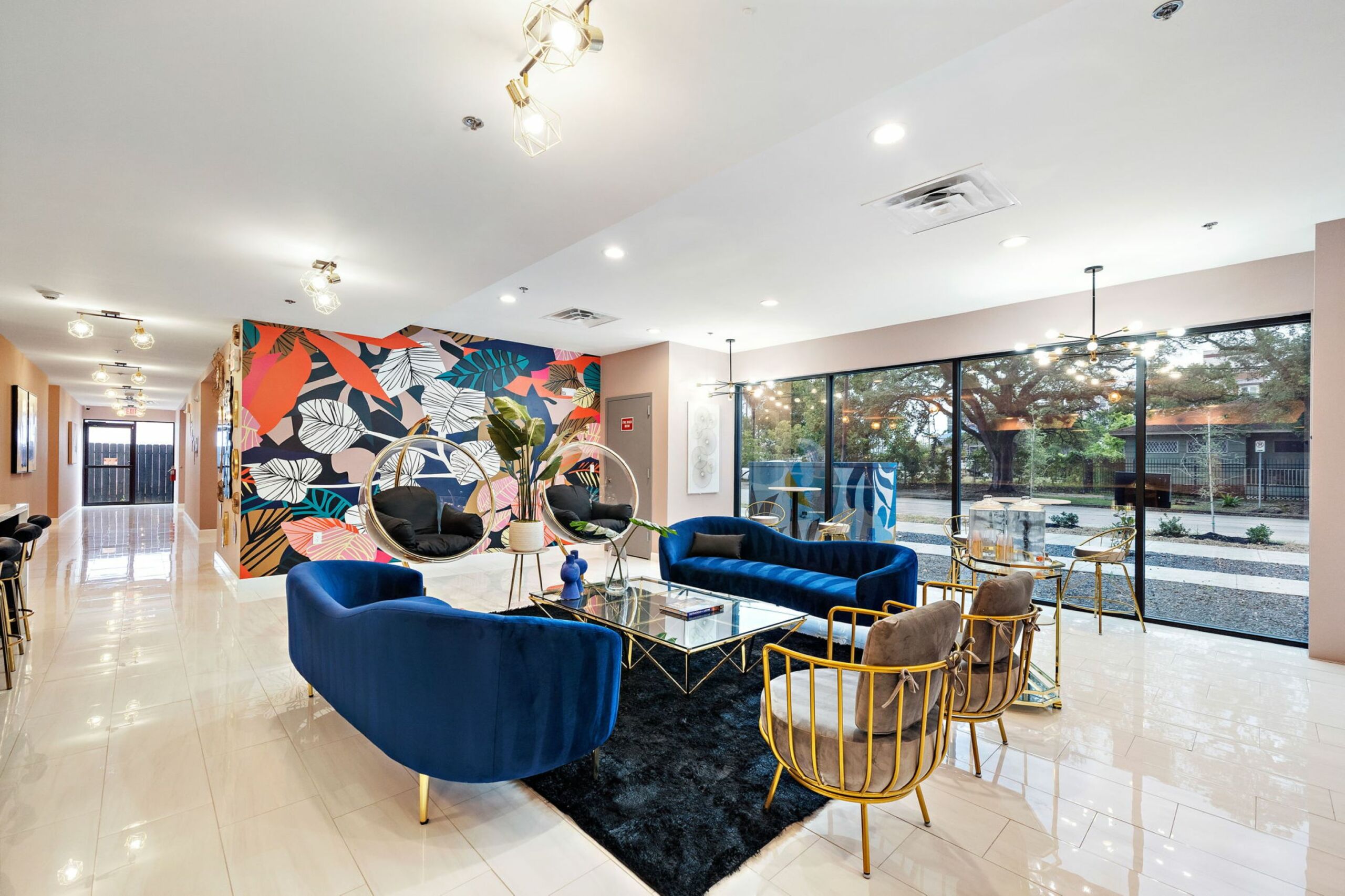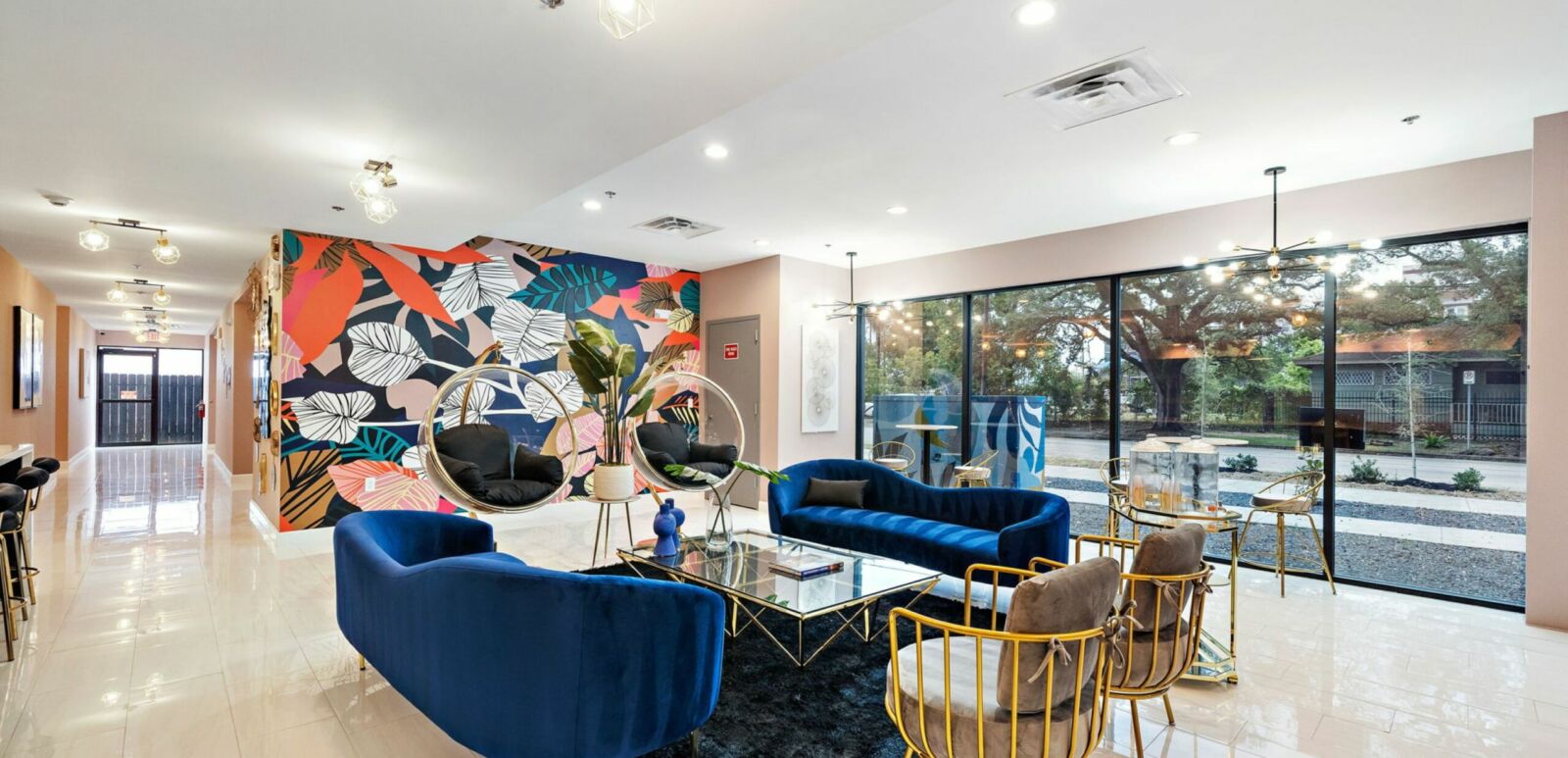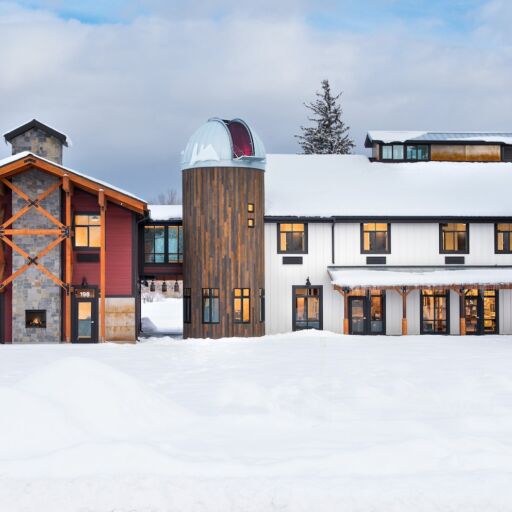Deidre Mathis, the owner of Wanderstay Boutique Hotel and the Wanderstay Hostel in Houston, traces the origins of her career in the travel and hotel industry to a study abroad trip she took to the Dominican Republic in college. She hadn’t thought much about travel before, but a Spanish professor encouraged Mathis to sign up for the trip after seeing how passionate she was about the language. On that 15-day trip, she says, she got the travel bug, and she got it bad.
“My life was not the same. I came back and I was like, whatever I just experienced in the Dominican Republic, I need more of that. And more and more. It was like a drug,” Mathis said.
That love of travel led her to more than 40 countries, all seven continents and a position recruiting for study abroad programs. And then it inspired her to switch gears and instead stay in one place. When she ended up in Houston, Mathis turned to the other side of the travel industry – creating a place for people to visit – and opened a hostel similar to the ones she had visited abroad. Wanderstay Hostel opened in 2018 and was the first Black-owned hostel in the United States. This past year, Mathis expanded and opened the 10-room boutique hotel in Houston’s East End.

As a Black hotel owner, Mathis is part of a small but long-standing group. According to a report from 2022, only 2% of hotel executives in the United States are Black. It’s a small increase from the 1.7% estimated in 2020, but far from the 14% of Americans that identify as Black.
Because the number of Black-owned hotels is relatively small, it might be easy for some to overlook the growth. “It’s the same list [of Black-owned hotels] that’s pretty much been going on rotation for like 10 years,” Mathis said. “And I’m like, no, there’s so many new ones.”
That expanding club of Black hotel owners is carrying forward a long history of Black involvement in the travel industry. Navigating discrimination has long necessitated that Black vacationers crowdsource and share information about where and how to travel in order to stay safe while seeking out relaxation and fun, and for more than a century, Black-owned hotels have been at the center of those conversations.
Examples of that crowdsourcing and information sharing can be found at least as far back as 1912. In August of that year, The Crisis, the NAACP’s magazine edited by W.E.B. DuBois published an article entitled “Vacation Days,” that pulled together the results of a survey they had sent out to their readers. They wanted to know: what were readers doing with their vacations? Where were they staying?
The article states, “The only sure means of escaping discrimination is to board an ocean liner … and make your pilgrimage abroad. But since only the very favored few can do this, the colored people are providing summer resorts for themselves, running hotels and acquiring pleasant cottage sites. Our correspondents have sent us word of a number of these places, though we do not doubt the list could be greatly extended.”
The article highlights seven different hotels and inns by name, like Hotel Dale in Cape May, New Jersey or the West Michigan Resort, but also gestures more broadly to vacation towns where accommodations can be found such as Asheville, N.C. and Silcott Springs, Va.

Two decades after The Crisis published “Vacation Days,” Victor Hugo Green famously took on the mission of disseminating travel information for Black travelers. He wrote and released the first edition of The Negro-Motorist Green Book in 1936. In case you haven’t heard of it, The Green Book, which was released annually until 1967, listed restaurants, shops and hotels that were safe for Black travelers during segregation. On page after page, you can read the names, listed by state and town, of Black-owned hotels and inns across the country.
More recently, the inheritors of the legacy of The Green Book might be the members of the Black travel movement (BTM), a semi-organized collection of groups and individuals working to fight bias in the travel industry through building community amongst Black tourists. This kind of work has made a noticeable impact. Although the direct results of movements are sometimes hard to measure, the amount of money Black travelers contributed to tourism in the United States went from $48 billion to $63 billion between 2010 and 2018. Many of those travelers are also intentionally seeking out Black-owned hotels and businesses.
In turn, a number of those hotel owners are doing their own work to increase opportunities in the industry and build community among travelers.
At Inkwell Beach House in Oak Bluffs, Mass., Kahina Van Dyke has built a space geared toward connection. Oak Bluffs is a historically Black vacation town on Martha’s Vineyard, and Inkwell is one of three properties there owned by Van Dyke.
At one point last summer, Van Dyke heard the joyous shrieks of teenage girls coming from upstairs. Two girls staying at the inn with their mothers discovered that they were both starting at Spelman College in the fall. Two days later, another Spelman-bound teen happened to visit with her own mother. Previously strangers, the girls became friends.
“It was just beautiful. The Spelman incoming freshman class happened to all be doing mother-daughter trips with us. And that’s just special,” Van Dyke said. She later added, “I’m all about community, connection, and culture. And that’s why I do what I do”
In addition to these kinds of vacation bonds, a few years ago, Van Dyke also started doing what she called Millennial House. She invited a group of artists and thinkers in their 20s and 30s to come stay and connect with each other. Among the first cohort were a photographer, a cellist, a curator and someone who had just graduated from Yale Divinity School. For Van Dyke, this was generational. It was about inviting new generations in.
“Letting them know that this place existed and it was for them,” Van Dyke said. “It wasn’t just for them once they had kids. It wasn’t for them once they had money. It was for them now and that their voice matters.”
Millennial House inspired the artist residency that Inkwell now sponsors. Every summer, an artist or writer comes to live and work at one of the beach houses. A few years ago, Bobby Rogers, the founder of the Minneapolis-based media studio, The Bureau, used his time in the residency to create the photographic portrait series “Grow, As We Are.” The series documented the Black community on Martha’s Vineyard and went on to show at the Martha’s Vineyard Museum and Minneapolis College of Art and Design.
Deidre Mathis of Wanderstay Hospitality is also working to support young people and encourage them to venture out into the world. In addition to the boutique hotel and the hostel, she’s created the Wander Abroad Foundation, a scholarship program that fully funds short-term study abroad programs for underrepresented students. Mathis partners with a school in Costa Rica where she herself once studied, and since starting the program in 2019, the Wander Abroad Foundation has made it possible for 19 students to take study abroad trips.
“I’m just so happy to be doing this work. It doesn’t feel like work. I love what I do, but I’m so happy to give back in that way,” Mathis said. “I tell my students all the time, if I change one person’s life from doing this program, then I’ve done my job.”
Mathis and Van Dyke aren’t the only ones running smaller-scale hotels and inns with communal atmospheres. There are a number of smaller Black-owned hotels and bed and breakfast across the country where you can build connections with your fellow travelers. The Peach House, in Atlanta, Georgia, is a family run bed and breakfast in the Little Five Points neighborhood. In Detroit, Michigan, sisters Roderica and Francina James own and operate The Cochrane House in a renovated 19th century mansion near downtown. Even further south, in Gulfport, Miss. the Almanett Hotel and Bistro, puts on live music events in addition to their hotel accommodations. There’s also the 8-room Keystone Inn in Gettysburg, Pennsylvania or Ye Olde Manor House in Elkhorn, Wisconsin. The list is always expanding.
Looking for even more places to stay? Check out Fifty Grande’s list from 2021.




